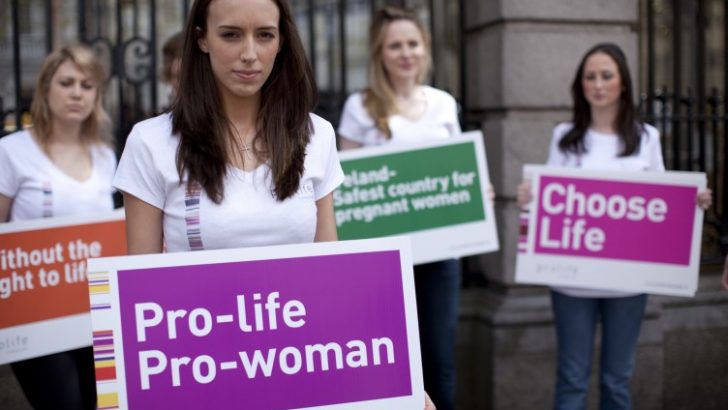Certain social values which are not in any way negotiable…truth, freedom, justice and love, writes Nuala O’Loan
As you contemplate the election, you may have very mixed feelings. The last ten years have not been great for Ireland. Unemployment rates rose to over 14%. Tens of thousands of people had to leave Ireland to get work. The property bubble led to unaffordable mortgages and ultimately to lost homes. Fr Peter McVerry has pointed out that the number of families living in emergency accommodation rose by 93% between January and October 2015.
There were 1,638 children living in such accommodation. People are still afraid that they will lose their homes, and are struggling desperately to hold onto them. There were massive cuts to public services. What difference will your vote make?
Of course, some of what happened was the result of international economic trends, though not all of it. Politicians do make decisions which impact massively on people’s lives. The people vote in the politicians. As you read this, every voter in Ireland has important decisions to make. For those who are Catholic the context within which those decisions must be made is, perhaps, different from the context within which others may operate, even though some Catholic values still inform the wider debate to some extent.
Catholicism proclaims certain social values which are not in any way negotiable. Those values are inherent in what we call the dignity of the human person – they are described by the Compendium of the Social Doctrine of the Church as truth, freedom, justice and love.
Common good
Our faith teaches us that we must seek the common good, not our own interests, that decisions must be made at the appropriate levels within society, and that each of us must play our full role in promoting and protecting policies which will support individuals, families and communities – we call that subsidiarity, which the Church proclaims as core to the achievement of the common good.
Finally we are called to love our neighbour, as we all learned when we were very small. We are called to give priority to those in greatest need. As you contemplate how you can vote for these core values, don’t be taken in by the slogans and the rhetoric. Think about the realities.
The Church teaches that the “faithful are never to relinquish their participation in public life, that is in the many different economic, social, legislative, administrative and cultural areas which are intended to promote organically and institutionally the common good”. It teaches also that “there is a legitimate freedom of Catholic citizens to choose among the various political opinions that are compatible with faith and the natural moral law, and to select, according to their own criteria, what best corresponds to the needs of the common good”.
The Australian bishops put it more simply. In 2013, they told their people that “we are called to be informed, active participants in our society, to vote wisely and to have a special concern for the most vulnerable individuals and families”. Bishop John Buckley of Cork issued a strong statement about the election as it affects Cork and Ireland as a whole, concluding, “We are presented with an opportunity to shape the type of society that we want on February 26. The decision is a significant one which deserves our serious consideration. We should not consider just our own needs but the wider good and we should be respectful of those who seek our mandate. Democracy is dependent on citizens who are willing to serve.”
Service
The service which is required of the people of the Catholic Church in Ireland at this time is exercising the right to vote, as they think fit and in accordance with their beliefs, and the service required of politicians who belong to the Catholic Church is to act in accordance with their consciences, for the common good. It is not always easy.
For politicians it can be very hard to determine what they should do, what cause they should support, but they should be challenged to state where they stand on all the important issues. However, there actually are some truths which are absolute, including the right to life from conception to natural death, protected from abortion and from the pressures to die through some form of assisted suicide.
It is the duty of society to protect its most vulnerable members and to value them all – that is what we mean by the dignity of the human person. That dignity does not cease to exist just because someone is very old or suffers from a disability. Similarly, people have the right to live with dignity, and to have access to proper housing, health, education, etc.
So that is the context within which the right to vote should be exercised. People in Ireland did not always have the right to vote. Turnout is traditionally reasonably high – around 70%. But that means that around 30% of voters, over a million people, traditionally do not vote in elections to Dáil Éireann.
The stakes are very high for Ireland on February 26. It is an opportunity to act in love and to seek justice for so many for whom life is so very hard.
Will you vote? Will you encourage your relatives, friends, children and grandchildren who are old enough to do so to exercise their vote? Together you can make a difference.


 Nuala O’Loan
Nuala O’Loan